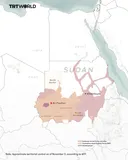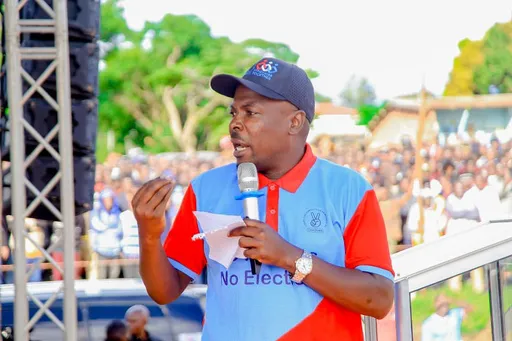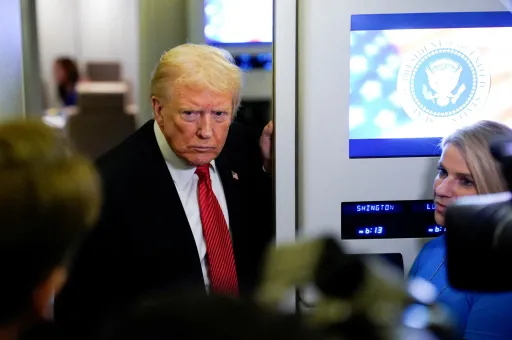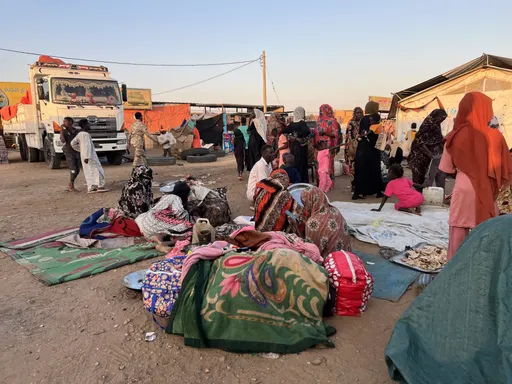By Abdulwasiu Hassan
Victor Sunday Mutawal, among those who escaped the coordinated attacks ahead of Christmas that claimed nearly 200 lives, said the suddenness of the offensive in the middle of the yearend festivities left the victims defenceless.
"I wasn't at home when they attacked. I was in Jos town that night," Victor, who is from the Gawarza Mongor village in Bokkos Local Government, recounts to TRT Afrika. "They killed around ten members of my wife's extended family, including my father-in-law and brother-in-law."
When Victor called again on the morning of Christmas, he was told that there had been a second attack. Besides committing mass murder and pillage, the attackers torched many houses.
"We organised a mass burial on December 24, thinking that is it," says Monday Kassah, chairman of Bokkos Local Government. “On the eve of Christmas, there was a second wave of coordinated attacks on over 21 communities."
Of the wounded survivors of the attacks, 50-odd are still in hospital battling injuries of varying degrees, ranging from bullet wounds to machete cuts.
The state governor has declared a week of mourning from January 1 and January 8 ''as a mark of honour for the memory of the deceased.''
During this period of mourning, flags will fly at half-mast, governor Caleb Mutfwang said after a meeting with various community leaders.
''I urge all citizens to use these days for intense prayers to seek the intervention of the Almighty God in defending our territories against wicked men that have risen against us,'' he said.
Needle of suspicion
Although nobody has claimed responsibility for the attacks and security operatives are still to make any public statement pointing to a particular group, the survivors believe the depredations were the handiwork of pastoralist herders.
Victor quotes some survivors as telling him that the attackers were herdsmen. Nigeria has been facing various security challenges including communal conflicts and violence by kidnapping gangs locally known as bandits who often carry out deadly attacks on communities.
Plateau state has suffered more than two-decades of frequent ethnic and religious conflicts as well as clashes between farmers and herders.
In 2004, then President Olusegun Obasanjo had to declare a state of emergency in that state and appoint an administrator to govern it as the ethnoreligious tensions worsened.
Even after the elected government was restored, Plateau has occasionally grappled with attacks and clashes.
Simmering tension
Despite the government's efforts and the crackdown on illegal possession of weapons, bloodshed hasn't stopped.
The communities directly affected by the attacks leading up to Christmas have witnessed an exodus from villages for fear of the armed groups returning for another strike.
"Right now, the situation is such that nobody is living in my village, barring some youth who have decided to stay back to watch over their homes. The women and children have all left," Victor tells TRT Afrika. “It’s the same in my wife's village."
Officials say that those who try to return to their villages are attacked again.
"Even as I speak to you, people of the Hurum community in Barkin Ladi Local Government area are dealing with this challenge," says Danjuma Dakil, the local council chairman.
"They were willing to take the risk of staying back, inviting instant retaliation. The attackers came back in the dead of night, burned down houses and a place of worship, and looted their potatoes."
Dakil believes the villagers can't return to their villages and live in peace "except if there is a strong response from the authorities".
The military commander in charge of the area, Abdulsalam Abubakar, had assured the people of the region that "we will not rest until we bring all those culpable for this dastardly act to book".
Waiting for closure
Although local authorities say they don't know the cause of the attacks yet, the official line is that all hands are on deck to prevent a recurrence of violence targeting communities.
"We are engaged in dialogue. We are now pursuing what went wrong, but there has been no provocation to our knowledge. As a government, our target is to restore peace," Monday Kassah tells TRT Afrika.
Barkin Ladi council chairman Dakil says the local administration has put the onus on the "higher authorities to direct the military to do the needful".
President Bola Tinubu has already directed the military to trace and arrest the attackers and ensure their prosecution for the killings.
For the displaced communities, the wait continues for the day they can return home without having to worry about being attacked again.




















